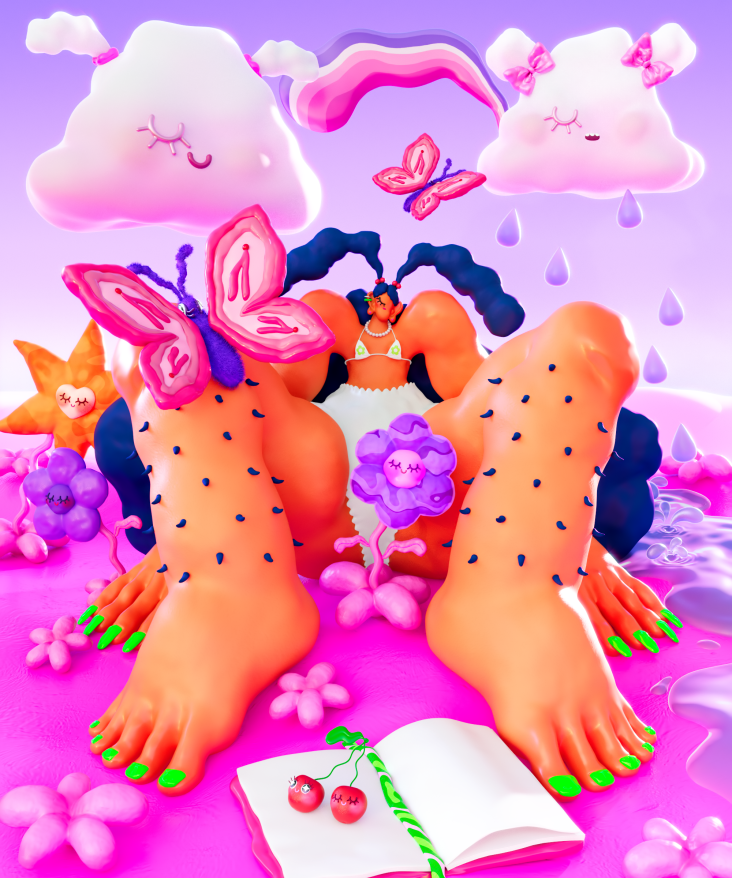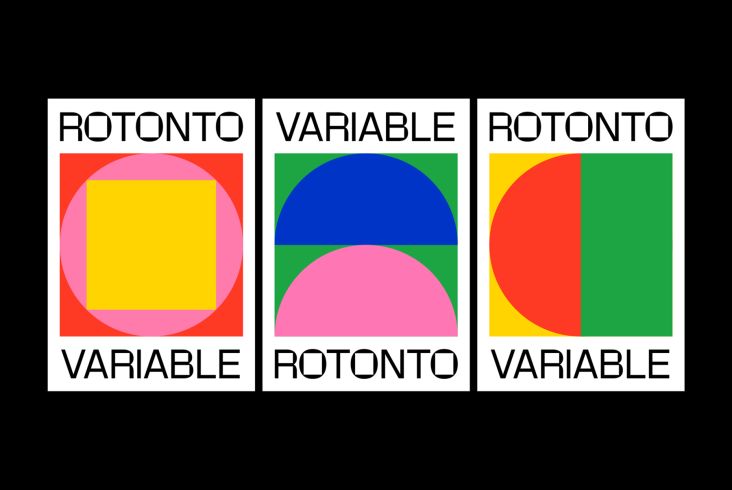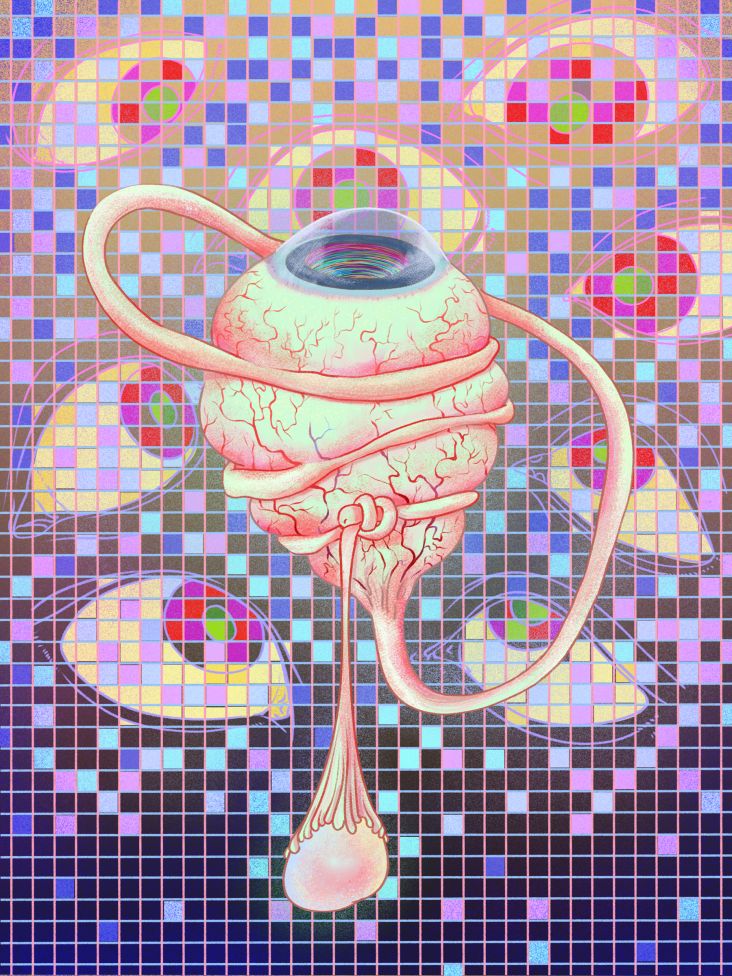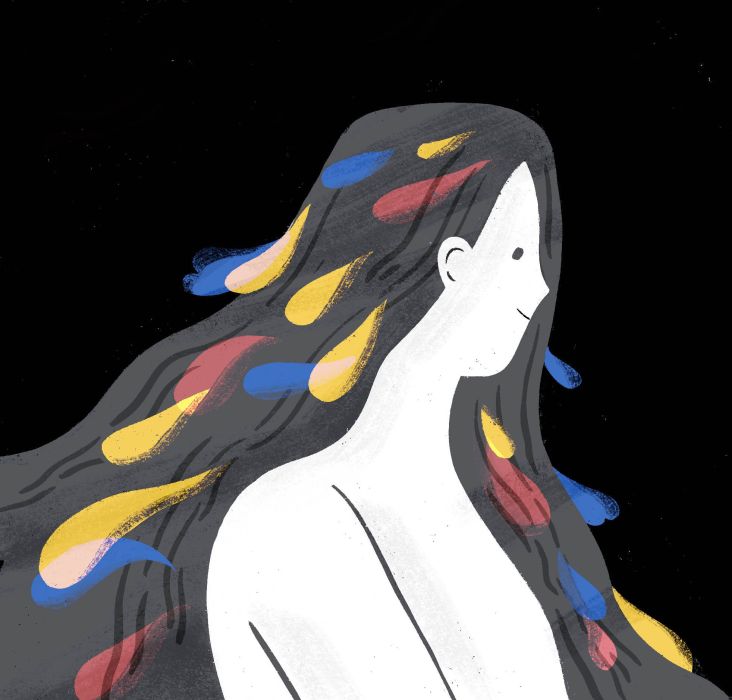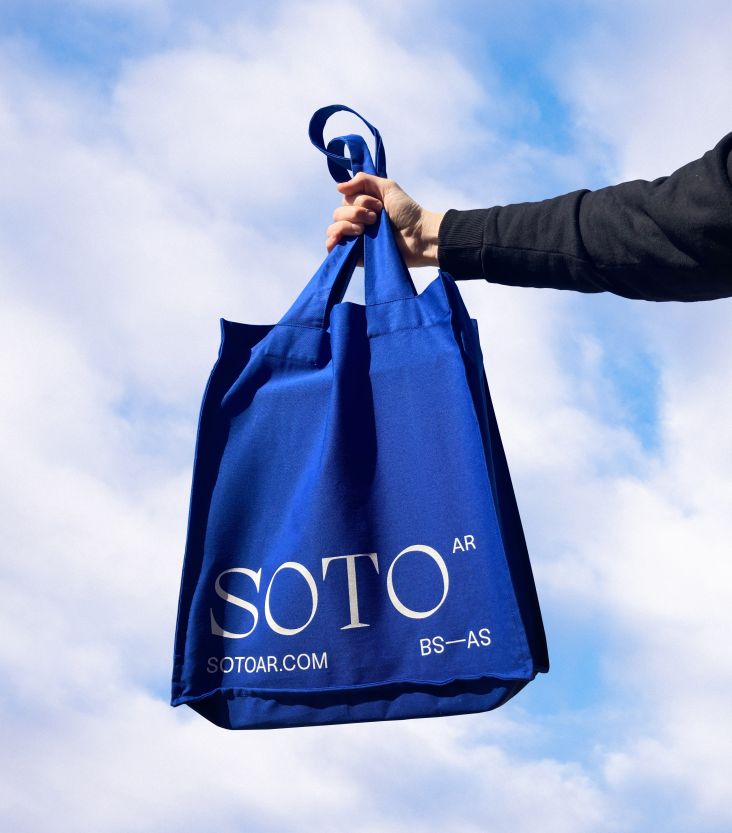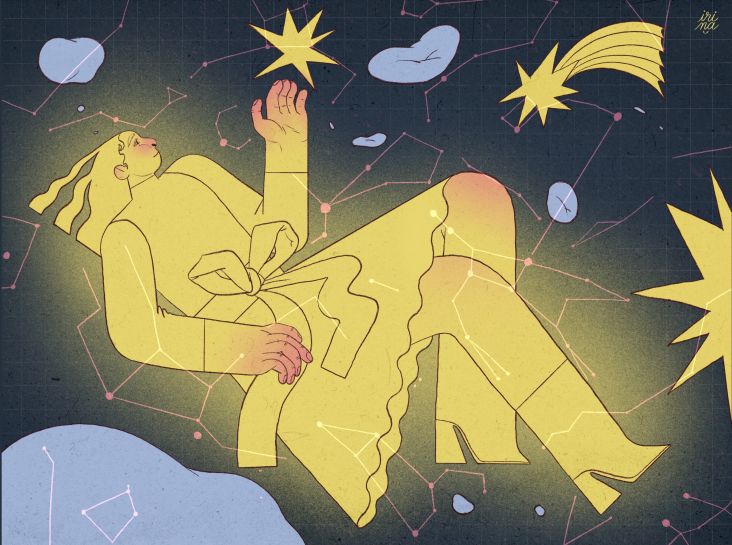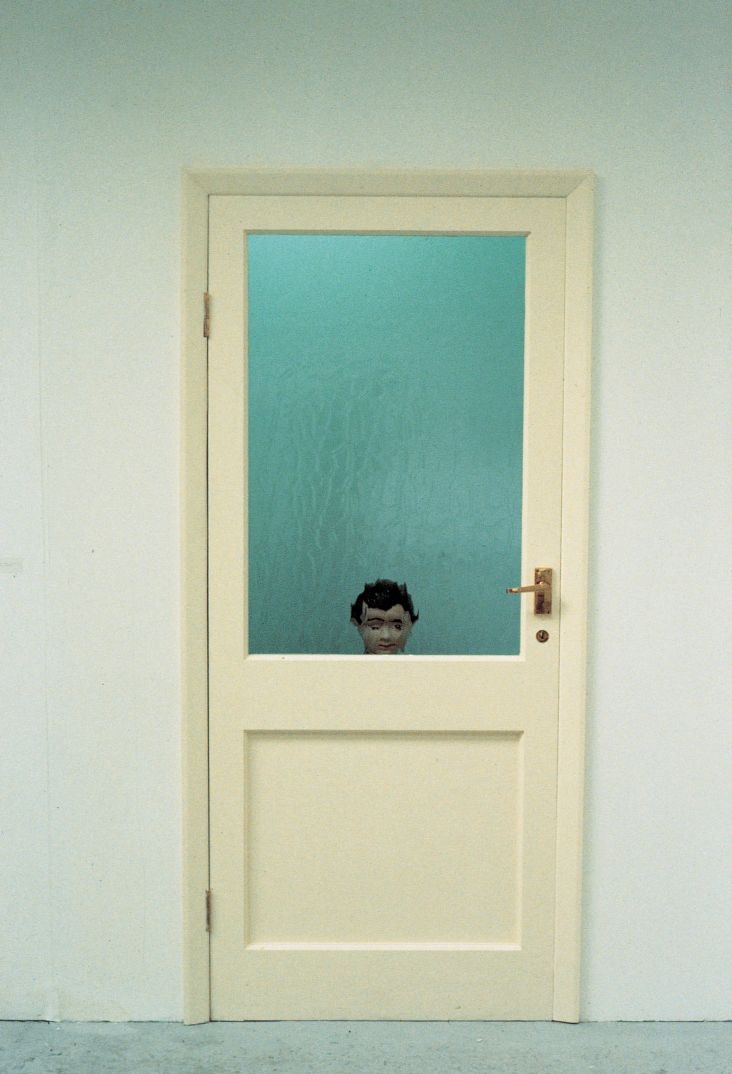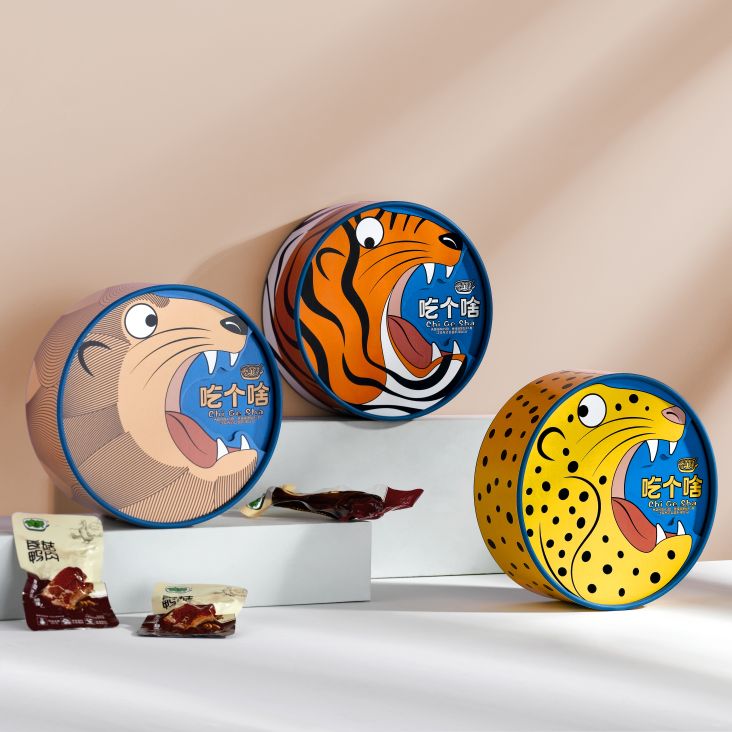Ziyun Liang of The New York Times on how to stay fresh and innovative as a product designer
Ziyun Liang, a New York-based product designer at The New York Times, talks to us about her career so far, how she found her way into the industry, and how NFTs have become her new favourite creative playground.
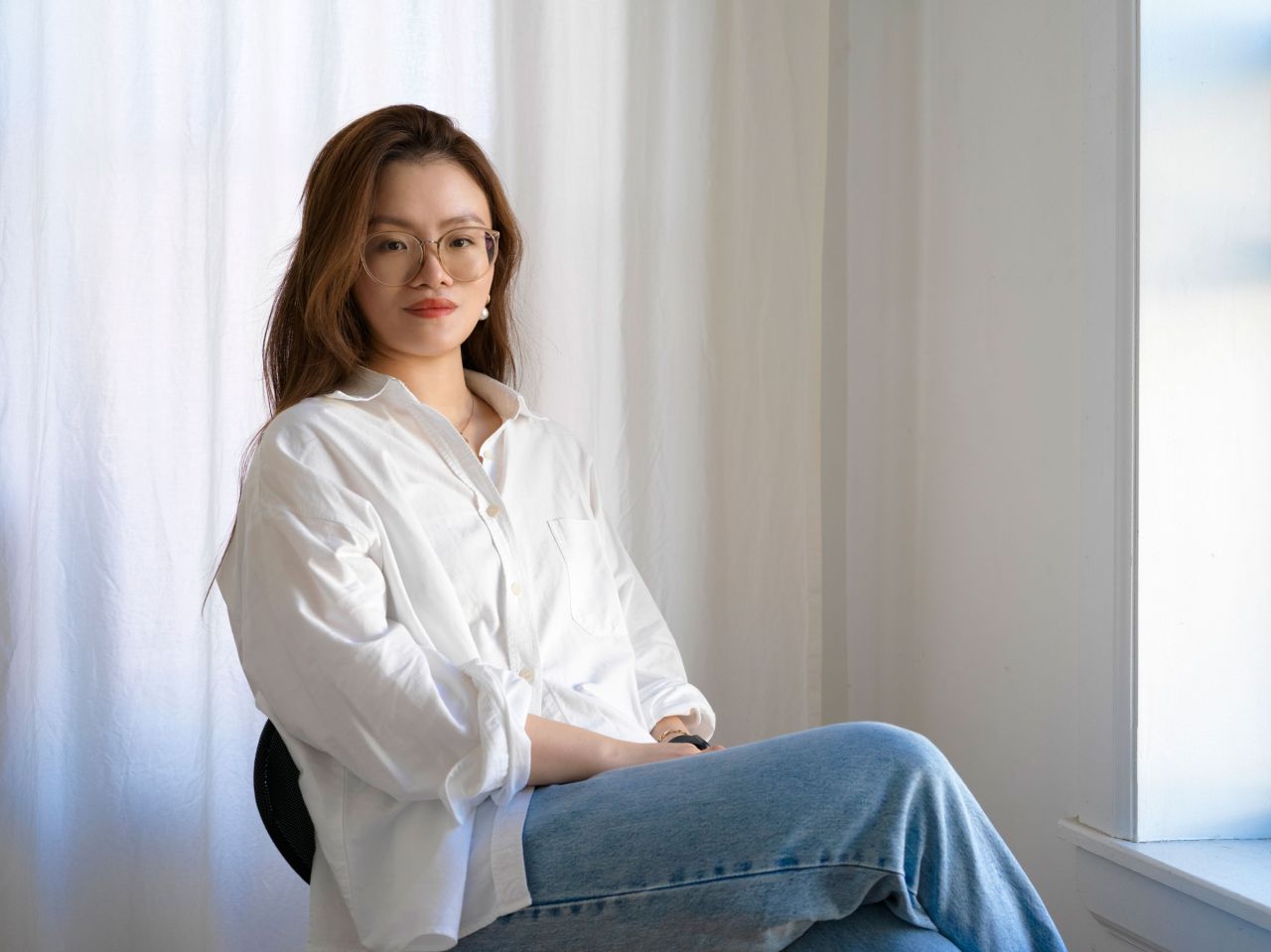
Ziyun Liang
For Liang, design brings people joy and makes the world a better place. She is incredibly concept-oriented, making it easy for her to innovate and flow with new ideas. She also has the credentials to back her creativity, with a BA in fine and studio arts, as well as an MS in design and visual communications.
She has brought her creative genius to some of the biggest names in the business: Discover, Masterclass, and even Apple. She also had a key role in designing the famous characters and videos for The Polos, which now streams on Discovery Kids, Sky TV, Nat Geo Kids, Youku China, and many more leading platforms.
Her work at the NYT is very rewarding, but Liang couldn't help but be enticed by the blossoming industry of NFTs. As luck would have it, she randomly connected with Audrey Ou, founder of TRLab. TRLab is a one-of-a-kind NFT company that is bringing fine art to the forefront. The other thing that sets them apart is that they are dropping NFT projects that are long-term investments, rolling out unique experiences for all project stages.
For Liang, the most exciting part of these projects is the value for the purchased product to evolve and the interaction from the community that drives it forward. She finds great joy in watching participants get involved and wants to curate an experience that is both fun and unique. We sat down with her to learn more about her process and see what advice she could offer to other young up-and-coming designers.
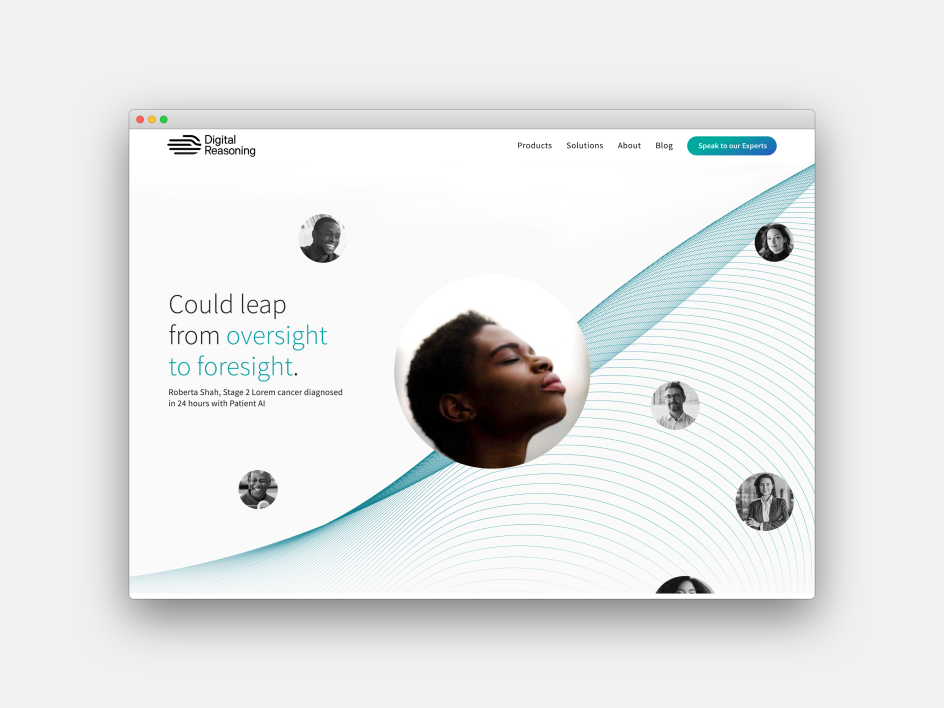
Machine learning - Digital Reasoning
How did you first discover your passion for product design?
Finding my way to product design has been anything but a linear path. With pretty much my whole family working in technology or engineering, I often felt like the black sheep as I was always drawn to find more creative work. For that reason, I decided to pursue an undergrad in fine arts, immersing myself in the art world. However, I was just awful.
I struggled to understand why I had to make free-form sculptures and paintings and was incapable of explaining my artistic vision to my peers and professors. The one project that stood out for me was a travel book that I designed, which won first place in a school design competition – the only award I received during my college experience. In hindsight, that should have been a light bulb moment for me.
What I did come to understand, though, is that design is about making a clear connection with other people and that I thrive most when I have a clear purpose for creating. With that self-awareness, I decided to pursue a master's degree in communication design at Pratt Institution. I enjoyed my time at Pratt and learned so much.
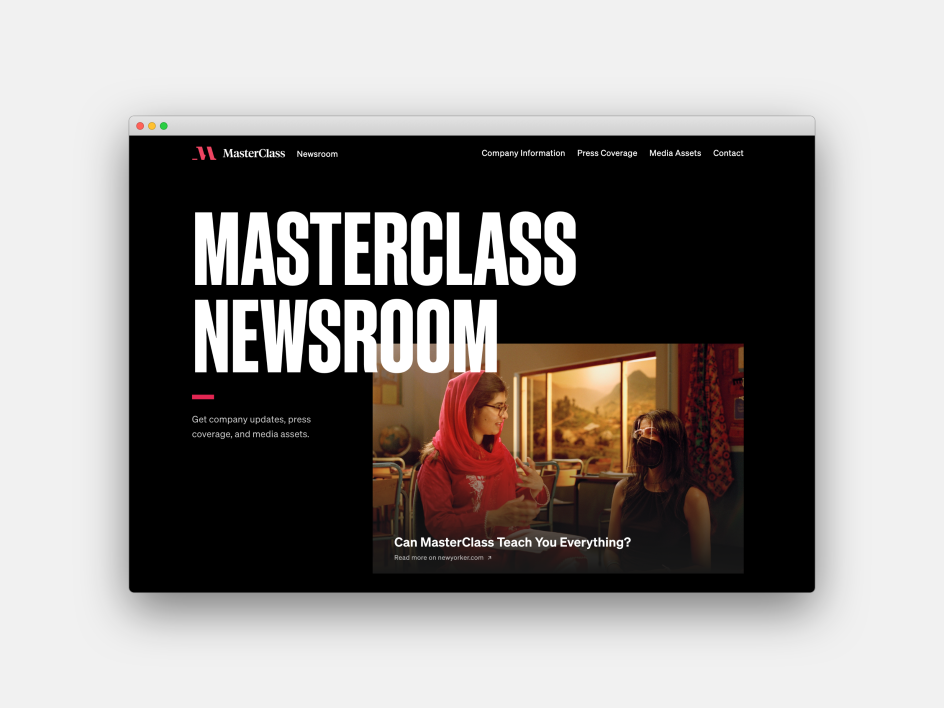
Education – Masterclass Newsroom
After graduation, I got my first job at a startup called Marcopolo Learning. It was a fantastic first job because I was involved in everything: game design, product design, UX/UI, business pitch decks, production files, and more. I was exposed to a wide range of disciplines and worked with a diverse group of people.
After two years, I decided to move into the world of agencies to continue improving my creativity by facing new challenges. Madwell exposed me to many advertising and product design projects, which is when I started to acknowledge my love for digital design. That was the motivation behind my move to Kettle, a purely digital-driven agency, where I had the opportunity to develop products for the top digital platforms.
The transition from agency work to client work was very natural for me. At the NYT, solving problems and working on a product that impacts millions of people is incredibly rewarding. It has cemented my love for digital product design even further.
I enjoy discovering new things and understanding how things operate. Being a product designer gives me the opportunity to peek behind the curtain of various industries and assist in problem-solving, enhancing my overall understanding of the world.
What type of products have you designed, and which was your favourite to work on?
I have designed a huge range of products – everything from digital games, to services, to online experiences for core products in industries such as skincare, real estate, machine learning, fashion, education, and W3.
I've loved every single project that I've worked on, as each one has been a unique experience allowing me to work within a new industry. That being said, I think the most exciting project to date has been Your Daytime Fireworks. It was a once-in-a-lifetime experience, collaborating with world-renowned artist Cai Guoqiang to launch a groundbreaking, first-time-ever virtual firework show in the crypto world.
The experience allowed me to create something completely new, enabled by blockchain technology, that was not quite a game nor a simple eCommerce product. This event-based model could easily be applied to many more projects since it requires less user effort to participate in than a game but also offers more fun and surprises than standard eCommerce.
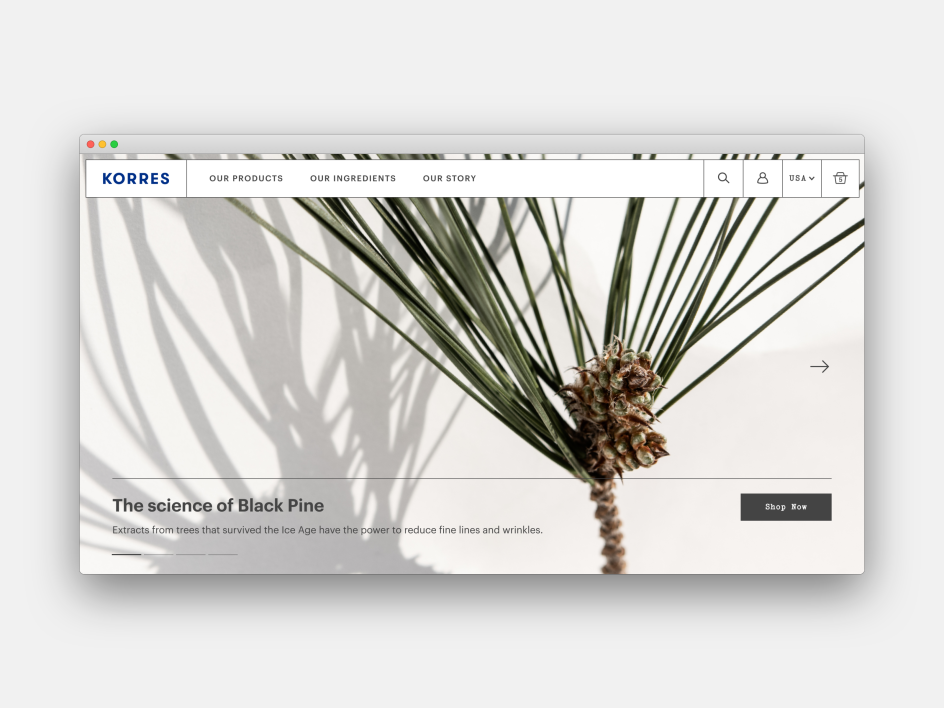
Skincare – KORRES
With your digital advertising design work at The New York Times, you walk a fine line of keeping on brand with a publication that has been around for over 170 years while also needing to stand out as unique and creative. How do you find that balance?
Understanding advertisers and user insights is critical. Our platform serves readers and helps them to better understand the world – and brands are part of this world. Advertisers join the journey to make their own mark. To get to the heart of why certain advertisers want to be positioned with a specific product, we have to consider what they have in common – in terms of goals – what characteristics bind and complement each other and what overall value they can bring to our readers. By getting clear on these answers, fresh ideas will often arise because they are tailored to the unique needs and problems of the specific product or brand.
Secondly, stepping away from what I'm working on is very beneficial. I frequently participate in other design provocation sprints and am constantly in conversation with other team leaders about the vision for projects outside of advertising. Unexpected connections are often discovered. When I absorb new information, ideas flow naturally, either adding new perspectives to existing solutions or completely new solutions emerge.
Last, I always try to think big. By thinking beyond my role and collecting data and insights from different functions, I aim to frame my vision in a way that appeals to others. I don't constrain myself by my job function and the resources that I currently have. Having a strong direction and goal helps to drive others to support and bring my ideas to life.
I have an innate passion for experiencing new things. I'm the type of person strongly motivated by challenges – I get deep satisfaction from connecting the dots and solving problems.
Can you share some of your exciting visions for the future of advertisements on The New York Times website?
The mission of New York Times Advertising is to help brands make their mark on the world by connecting them with the right audience and message. A lot of our vision work is focused on meaningfully connecting advertisers and audiences by taking into account different user modes, ensuring that ads are intentional and in harmony with the surrounding content, and developing new formats with high performance. The entire experience is designed to add delight and value to our readers.
You recently brought your design skills to the world of NFTs. Can you share your experience and why this new industry appeals to you?
I have an innate passion for experiencing new things. In general, with any new industry, I've found there are both challenges and freedoms. I'm the type of person strongly motivated by challenges – I get deep satisfaction from connecting the dots and solving problems. Because the world of NFTs is so new, there is so much freedom to take risks, have fun and carve out your own path.
For me, the three most intriguing aspects of NFTs and how they're shaping the W3 world include Blockchain technology, which has created tons of new experiences and ideas that never even existed before – gas fees, burning, minting, geo and timezone agnostic, co-creation, etc. It opened my mind to things that I had never considered before.
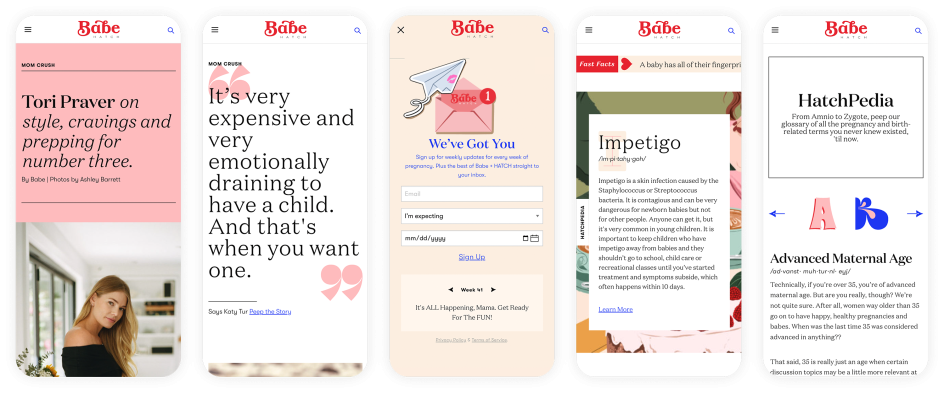
Fashion – Babe by Hatch
 x AI2041 NFT](https://www.creativeboom.com/upload/articles/b5/b5a732e5c29f5355dd23a0b1ba6c9e299ea62f4a_944.png)
W3 – TRLab x AI2041 NFT
For example, the NFT dropping mechanism. To reduce gas wars, control bots ensure timezone agnosticism, provide a smooth minting experience, adapt to crypto market fluctuation, and establish fairness and inclusivity. NFT drop mechanisms can quickly become very complex.
The Your Daytime Fireworks digital experience had six stages: Announcement, Golden Ticket, Gap, Sales (4 tiers), Daytime Firework, Special Edition, and Firework Forever. While having so many stages is complex in and of itself, each stage was also carefully designed and built to add emotional and effort value to the final NFTs that were awarded at the end.
NFT projects sell an investment in everyday life. What we buy online is a one-and-done deal, like digital games or even streaming subscriptions. However, in the NFT world, purchasing a product is just the beginning of the journey. A successful NFT project must have a strategy to continuously generate benefits for the end product to increase its value – like low royalties that encourage secondary market trading volume, awarding long-term NFT holders extra discounts on future drops, or offering exclusive collaborations with other platforms for NFT holders.
I believe NFT assets will become the economic foundation of the W3 world. Community is everything in the Web2 world; community is treated as an independent aspect. However, in Web3, the community is everything. NFT projects are all about co-creation and individuality. In Your Daytime Fireworks, participants chose the date to set off their fireworks based on their personal weather and location, resulting in unique NFTs. Community is an indispensable part of generating any NFT product.
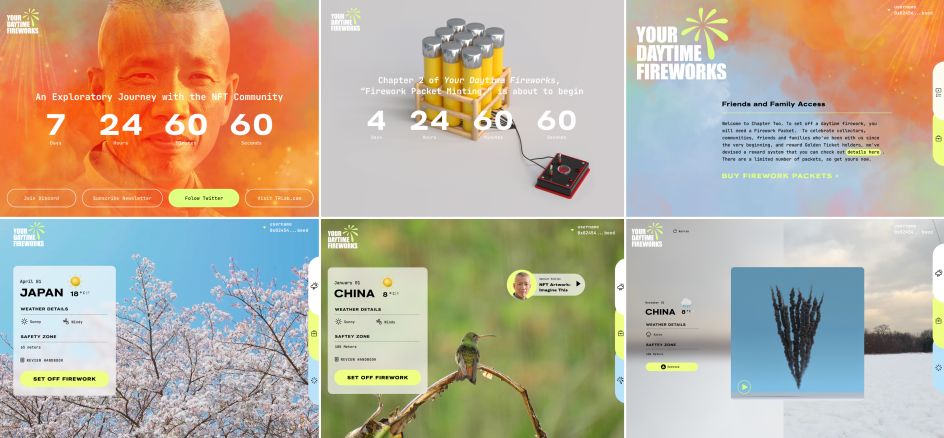
Homepage designs for various stages of Your Daytime Fireworks
Looking towards the future of NFTs, what advice would you give to other designers looking to get involved?
Join early! This is an exciting opportunity to define and shape experiences by constantly considering the big picture. We must consider how we can harmoniously serve communities while also achieving our business goals.
Between her innovation for advertisements at The New York Times and her recently discovered massive creative potential with NFTs, Liang is sure to delight users in fun ways. She proves that there is no need to sacrifice the joy of design to make a profit.





 by Tüpokompanii](https://www.creativeboom.com/upload/articles/58/58684538770fb5b428dc1882f7a732f153500153_732.jpg)


 using <a href="https://www.ohnotype.co/fonts/obviously" target="_blank">Obviously</a> by Oh No Type Co., Art Director, Brand & Creative—Spotify](https://www.creativeboom.com/upload/articles/6e/6ed31eddc26fa563f213fc76d6993dab9231ffe4_732.jpg)








